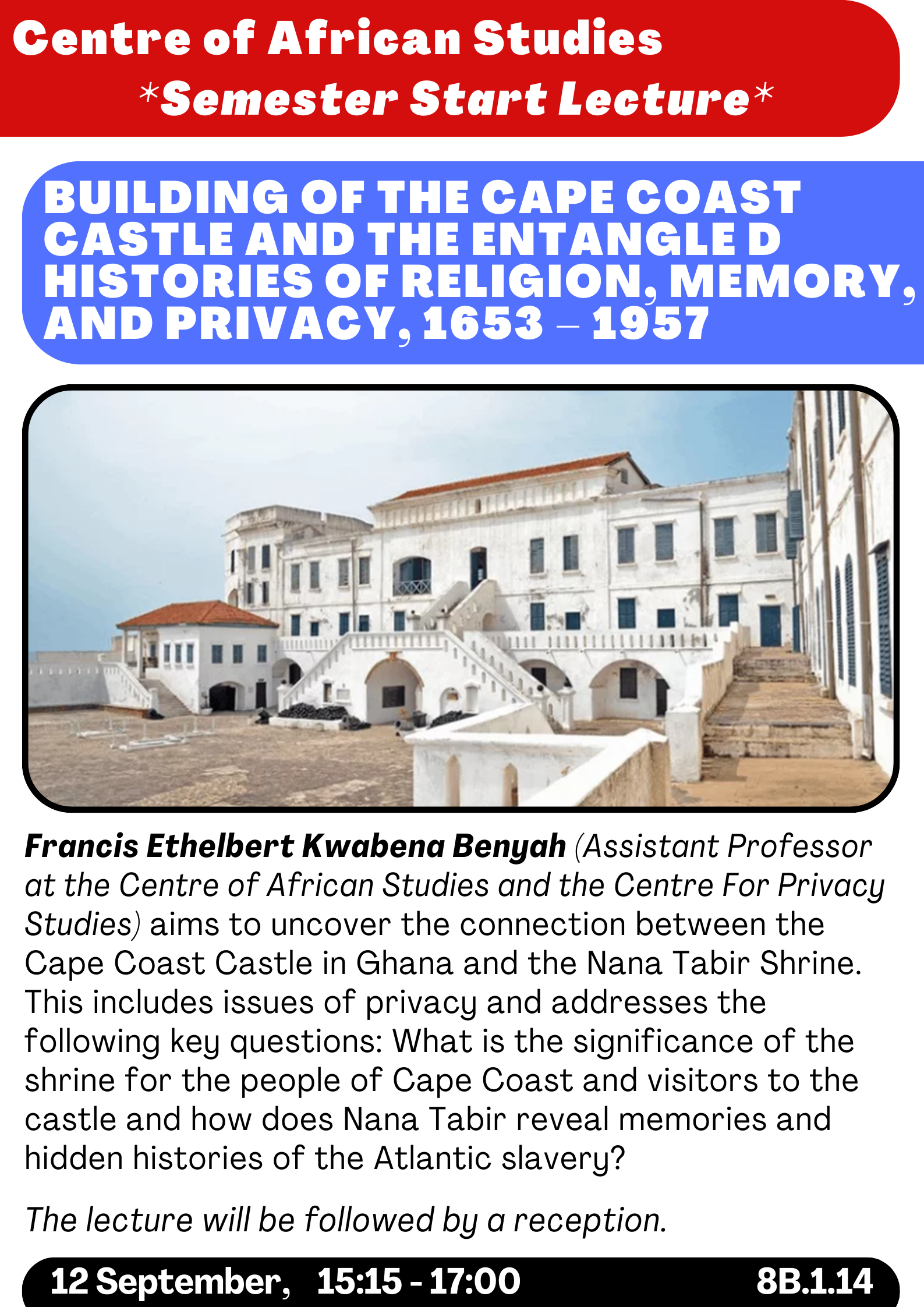Universitetsavisen
Nørregade 10
1165 København K
Tlf: 21 17 95 65 (man-fre kl. 9-15)
E-mail: uni-avis@adm.ku.dk
Seminar
Seminar — This seminar uncovers the connection between the Cape Coast Castle in Ghana and the Nana Tabir Shrine. This includes issues of privacy and addresses the following key questions: What is the significance of the shrine for the people of Cape Coast and visitors to the castle and how does Nana Tabir reveal memories and hidden histories of the Atlantic slavery?
Date & Time:
Place:
University of Copenhagen South Campus, Karen Blixens Plads 16 - Room 8B.1.14
Hosted by:
Centre of African Studies and Center for Privacy Studies
Cost:
Free
One of the notable features encountered by visitors at Cape Coast Castle in Ghana is the Nana Tabir Shrine, located within one of the former slave dungeons. Despite the astonishment and varied emotions it evokes among visitors, the historical significance of Tabir to the castle often gets overshadowed by the tour guides and the growing body of research on Ghana’s slave forts and castles. This lecture aims to uncover the connection between the castle and the Nana Tabir shrine, while addressing several key questions. Why do local authorities and museum administrators choose to locate a deity within a former slave castle? What is the significance of the shrine for the people of Cape Coast and for visitors to the castle? In attempting to answer these questions, the lecture will also explore broader inquiries that touch on issues of privacy. For instance, how does Nana Tabir reveal memories and hidden histories of Atlantic slavery, particularly in relation to the interactions between European merchants and local authorities on the West African coast? Through the lens of entanglement, the lecture will delve into these and other questions, invoking various historical connections between architecture, religion, trade, and privacy. The argument presented in the lecture is that while the shrine serves as a key to interpreting the past and uncovering some of the secrets between European merchants and local chiefs, it also stimulates and reshapes memories, giving rise to ambivalent attitudes towards ritual performances.
The lecture will be delivered by Assistant Professor at the Centre of African Studies and the Centre For Privacy Studies, Francis Ethelbert Kwabena Benyah. A reception will follow the lecture.
